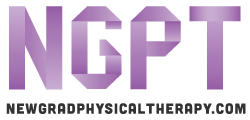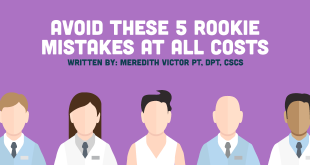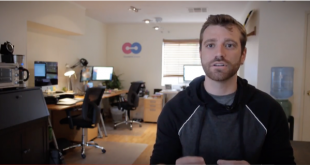You may see the title of this article and think quizzically, “What on earth is an informational interview?”
Happily employed PTs may be tempted to skip over this article, but please, read on. An informational interview is an extremely valuable tool that can help you elevate yourself professionally, while forming vital industry connections.
An informational interview is traditionally a way for a job seeker to meet with an employee of a given organization to learn more about the company culture and industry. Similarly, the employee of said organization can gauge whether the job seeker would be a good fit for a candidate pool of future hires.
Informational interviews are vital for new PTs seeking jobs in particular organizations.
If you are upfront about why you wish to speak with your contact, they will typically be more than happy to share their knowledge with you. Here are just a few of the things you can gain from speaking with someone you admire in the professional world.
Insider information about the exact steps they took to get where they are
- Continuing education classes they took
- Their own career trajectory choices and position/job moves
- Certifications they acquired
- Work/life balance decisions they made during their career path
Insider information about the company they work for
- How they were hired into their current role/became their own boss
- Corporate culture of the organization: How casual is it? How open to ideas is the managerial team?
- Opportunities for advancement and traits they value in a strong employee
Melissa Totah, MA, LPC-S, NCC, is a licensed professional counselor and career coach in Austin, TX. She frequently works with new healthcare graduates and explains the benefits of an informational interview for a newly minted physical therapist:
When someone hasn’t really established himself/herself in the physical therapy community yet, an informational interview can help them set a path to start establishing their brand. An experienced therapist working in a given role can help shed light on potential opportunities and roadblocks in the path ahead.
Getting started is the hardest part.
Imagine yourself in your dream job five years from now, or maybe even ten. You may be at the same company, or you may be in a very different place. Perhaps you’ll be a clinic director or a supervisor. A geriatric certified specialist. A pelvic health guru. Maybe you’ll be in medical device sales, or you could even be a professor. Is there someone out there who is doing what you want to do? Start by compiling a list of professionals you admire.
Once you have determined some people whose career paths you’d like to emulate, start doing your homework.
Read their articles. Listen to their podcasts. Follow their twitter accounts. Then reach out to them via email.
Be upfront about what you’re seeking. If you are also looking for a job, say that in advance. Say that you realize they/their organization may not be hiring, but you’d love the chance to learn more about them and see if you’d be a fit for a future candidate pool. If you’re simply an admirer looking for some career pointers, be flattering (not over the top) and let him/her know that you are simply looking to pick their brain so you can follow a similar path. If you’re lucky, you’ll land an informational interview. If you’re very lucky, you may even land a job. In some cases, you may be lucky enough to land a mentor! At the very least, you might as well reach out to those you admire; you never know where a little boldness can pay off in spades.
What happens if I land an informational interview?
First of all, respect the therapist’s time. Typically, these talks are about 15-30 minutes, max. Plan ahead to use this time wisely! If you’re meeting at someone’s office, respect their setting. Don’t show up in jeans if he/she wears a white coat in the clinic. If you’re able to meet in person, offer to treat them to lunch somewhere of their choosing. Be prepared to pay!
What should I ask?
Stick to questions about skills you need, how to acquire those skills, continuing education to take, patient populations to seek, volunteer projects to do and materials to read.
Don’t sound too “what’s in it for me”, either. Especially if you’re trying to land a gig working for the individual/company, spend some time asking about their treatment philosophy, approach to patient satisfaction, etc. If you’re trying to get out of patient care or make more money as a physical therapist, be extremely choosy about how you ask your questions. For example, you can say this to a clinic director: “I’m considering a role that allows me to be less hands on and more strategic with business planning. What skills did you need to feel successful in your role?” Conversely, we don’t recommend the following: “I really hate touching people’s feet and can’t bear the thought of another person crapping on my shoes. How can I get where you are and stop having to listen to other people whine all day?” Treat the interviewee like a potential boss and keep it very professional.
What should I bring?
Definitely have a copy of your resume on hand. You never know if someone will ask for a copy to keep on file, so it’s better to be prepared with an error-free resume.
Have a prepared “elevator pitch” about yourself, too. Just because you’re there to pick the interviewee’s brain, you can’t expect to completely avoid answering questions about yourself. If you met someone on a thirty second elevator ride, you should be able to tell them about who you are and what you do within that time. Don’t be arrogant or start listing off your scrolling parchment of unmatched achievements, but be ready to talk about your clinical affiliations and work experience, as well as where you want to go professionally.
How should I leave things when we’re done?
Just like a first date or normal job interview, the end of an informational interview can be awkward if you’re not careful. Think ahead about what you want them to remember the most about you. Make sure to shake the interviewee’s hand firmly, thank them for their time, and say how much you enjoyed meeting with them. Say you would love to keep in touch if they are willing.
Don’t forget to send a thank you note or email!
 NewGradPhysicalTherapy.com The Largest Online Resource For New Grad Physical Therapists
NewGradPhysicalTherapy.com The Largest Online Resource For New Grad Physical Therapists


